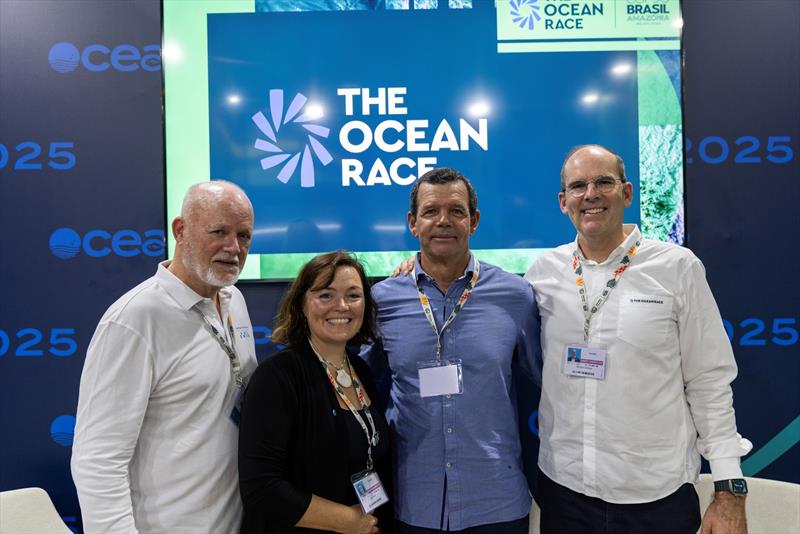
The Ocean Race brings the spirit of ocean racing to COP30
by The Ocean Race 19 Nov 2025 13:59 GMT

COP30 in Belém, Brazil © Sophie Valerie Hulme / Communications INC
At COP30 in Belém, The Ocean Race brought the spirit and determination of ocean racing to the center of global climate talks with its event Racing for the Ocean: Faster and Smarter.
Inspired by how sailors face uncertainty, solve problems under pressure, and never give up, the event urged leaders to adopt that same mindset to protect the ocean and help stabilize our planet's climate.
Brazilian sailing icon, Olympic champion, and The Ocean Race winner Torben Grael shared how a lifetime at sea shaped his understanding of resilience, responsibility, and perseverance, traits essential not only to winning races but to protecting the planet:
"Sailing is a very difficult sport because it involves water and wind, both unpredictable and sometimes dangerous. You make many mistakes because you cannot foresee everything that will happen," he said. "I have been sailing for 50 years and it's the same with our planet: we face setbacks, but we must keep coming back, keep learning, keep improving. We must analyze what went wrong, decide what to correct, and make it better next time. That is how we win this race for the ocean."
COP30 has drawn more than 55,000 participants, including heads of state, scientists, youth, Indigenous leaders, and NGOs to the heart of the Amazon, marking a pivotal moment for turning promises into tangible action.
At Racing for the Ocean, The Ocean Race united global experts to explore the findings of the Planetary Health Check 2025 (Ocean Layer) and highlight the urgent need to protect natural carbon sinks, reinforce ocean science, and revitalize humanity's connection to the ocean.
Lucy Hunt, Ocean Impact Director at The Ocean Race, presented key findings from the Planetary Health Check, launched at the UN General Assembly in September. She explained: "Just as a blood test reveals the health of the human body, the Planetary Health Check evaluates Earth's vital systems, 13 control variables across nine Planetary Boundaries that keep our planet stable and life-supporting. The 2025 results are troubling: seven of the nine boundaries have been breached, including Climate Change, Ocean Acidification, Land System Change, and Biosphere Integrity. All show increasing pressure, meaning our planet's health is deteriorating. Only two remain within safe limits: Stratospheric Ozone and Atmospheric Aerosols. We urgently need faster, bolder action."
UN Secretary-General's Special Envoy for the Ocean Peter Thomson highlighted the rapidly escalating urgency: "Ocean health is currently, measurably, in decline. But there is hope. Around the world, ocean science is advancing at a pace we have never seen before. Every major scientific gathering on the ocean is oversubscribed, there is a growing determination to act."
Richard Brisius, Race Chairman of The Ocean Race, emphasized the unique role sailors and the sporting world can play in driving ocean protection. Reflecting on The Ocean Race's legacy of ocean advocacy, Brisius referenced the inspiration of Sir Peter Blake, legendary sailor and environmental champion: "After racing around the world five times, Sir Peter Blake dedicated the rest of his life to protecting our blue planet. Twenty-four years ago, he was here in Belém, on his final expedition to the Amazon. His mission was simple: go to places, be inspired, and pass on that inspiration."
"Sailors depend on the ocean: it is our racetrack, our home, our teacher. We have a responsibility to protect it," he added. "The Ocean Race is more than a sporting event; it is a global platform to rebuild our relationship with the ocean. Just as sailors navigate the unknown with courage, determination, and teamwork, the world must chart a new course, one that respects planetary boundaries and safeguards the ocean for future generations."